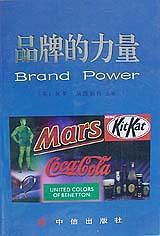

具体描述
Book Description
A fresh and original look at the phenomenon of "cult branding" -- how companies cultivate fanatical customer loyalty.
At first glance, companies like Apple and Nike have little in common with organizations like the Hell’s Angels and the Unification Church. But in reality, they all fulfill the main definition of a cult: They attract people who see themselves as different from the masses in some fundamental way. Contrary to stereotypes, most cult members aren’t emotionally unstable—they’re just normal folks searching for a sense of belonging.
Marketing expert Douglas Atkin has spent years researching both full-blown cults and companies that use cult-branding techniques. He interviewed countless cult members to find out what makes them tick. And he explains exactly how brands like Harley- Davidson, Saturn, JetBlue, and Ben & Jerry’s make their customers feel unique, important, and part of an exclusive group—and how that leads to solid, long-term relationships between a company and its customers.
In addition to describing a fascinating phenomenom, The Culting of Brands will be of enormous value to business leaders. It will teach marketers how to align themselves with a specific segment of the population, how to attract and keep new “members,” how to establish a mythology about the company, and how to manage a workforce filled with true believers.
Once a brand achieves cult status, it becomes almost impossible for a competitor to dethrone it. The Culting of Brands will reveal the secrets of fierce customer identification and, most important, unbreakable loyalty.
From Publishers Weekly
Atkin, a strategy director for a New York ad agency, believes the process through which consumer brands build customer loyalty is equivalent to the way religious cults recruit members—and, he says, that's a good thing. To him, cults are little more than well-defined affinity groups engaging in a few activities outsiders find unusual because they believe something different. Yet his superficial consideration of groups like the Unification Church and the Landmark Forum rarely gets into the specifics of those belief systems, instead presenting a fuzzy image of people bonding together to give their lives meaning. (Obvious negative examples, like Waco and Jonestown, are cursorily dismissed as badly managed.) Atkin then takes this broad definition and applies it to the commercial realm, making a reasonable case that Harley riders and Apple users, among others, follow similar behavioral patterns. But he overuses the term "cult" to the point of meaninglessness: it's one thing to compare Marine Corps training to an initiatory ritual, quite another to label eBay or JetBlue customers cult members just because they use the product repeatedly. While little argument can be raised against Atkin's proposition that "few stronger emotions exist than the need to belong and make meaning," more conservative readers may balk at his notion that the decreasing power of our culture's traditional institutions is an opportunity to exploit those emotional drives for profit. Perhaps would-be cult leaders will be able to use Atkin's marketing strategies to repackage themselves for broader mainstream appeal.
From Booklist
Atkin, an advertising executive, examines the techniques to develop extreme buyer loyalty and discusses cults and cult-brand members' motivations, desires, and attitudes. The elements common to brand definition (used by companies such as Harley Davidson and Saturn) and to cult definition are ideas of community and belonging, ideology, devotion, and advocacy. Atkin researched many cults, including established religions, fan clubs, current and ex-marines, AA, and numerous CEOs of cult-brand companies and cult leaders. With the growth of sophisticated consumerism and the reality that institutions are increasingly inadequate sources of meaning and community, Atkin believes that alternative religion and brands that offer these benefits will flourish. His advice for establishing a cult brand includes understanding that people "buy" people and not things and ideas alone and investing at least as much into developing a cult brand as your members do in emotional and financial commitment, energy, and creativity. This is an insightful and challenging perspective on marketing for everyone, even those who may not agree with the author.
Mary Whaley
Book Dimension
length: (cm)21.3 width:(cm)14
作者简介
目录信息
读后感
评分
评分
评分
评分
用户评价
这本厚重的书,拿到手里沉甸甸的,封面设计简约却透露着一丝不详的预感。我本以为会读到一些关于当代消费主义的尖锐批判,或者至少是一些关于品牌营销策略的深度剖析。然而,读完之后,我却感到一种深深的迷失感,仿佛被卷入了一场宏大叙事中,却找不到清晰的指引。作者似乎试图构建一个庞大的理论框架,将文化、社会学、历史和商业分析揉杂在一起,构建了一个关于“信仰构建”的宏大蓝图。书中穿插着大量的案例研究,从早期的宗教运动到现代的社交媒体狂热,试图证明品牌和信仰之间存在着某种古老的、深层的联系。这种跨学科的尝试固然令人敬佩,但最终效果却显得有些力不从心。理论的推导过程过于晦涩,许多关键概念的界定模糊不清,导致读者在跟随作者思绪的跳跃时,常常感到疲惫和困惑。比如,当他讨论“仪式感”在品牌忠诚度中的作用时,引用的文献和理论跨度极大,从人类学到后现代哲学,让普通读者难以消化和吸收其中的核心观点。我更期待的是一种更具操作性或更具启发性的视角,而不是这种哲学思辨的泥潭。
评分阅读过程中,我发现书中对不同文化背景下品牌崇拜的比较分析显得有些片面和单一。作者似乎过度依赖西方和部分东亚的案例来构建其核心论点,而对其他地区的文化土壤中信仰的形成和品牌角色的差异着墨不多。这造成了一种认知上的不平衡感,即作者的“普适性”理论,在具体到非主流案例时,解释力明显下降。比如,当讨论到某些基于地域的传统信仰如何被现代品牌嫁接时,作者的分析显得有些牵强附会,缺乏深入的田野调查支撑。这本书的雄心是巨大的,试图一网打尽所有关于“崇拜”的现代变体,但在处理复杂性和多样性时,却暴露出准备不足的弱点。因此,那些期待看到全球视野下品牌文化交融的读者,可能会感到这份研究的覆盖面和深度都未达预期,更像是一份基于特定知识圈层内观察的精彩论文,而非一部真正具有包容性的文化人类学著作。
评分这本书最让我感到遗憾的是,它在提出诸多引人深思的问题之后,却未能提供哪怕一个具有说服力的、关于“如何应对”的路线图。作者成功地描绘了一幅我们被各种“品牌信仰”所围困的图景,他精准地指出了这种现象的诱惑力和潜在危险,但当我合上书本,试图思考如何在日常生活中保持清醒的认知时,却发现自己空手而归。书中大量篇幅用于追溯和定义这些“信仰体系”的起源和机制,这固然重要,但如果一本书仅仅止步于描述“是什么”,而回避了对“怎么办”的探讨,那么它的实用价值就会大打折扣。我原以为它会提供某种程度上的“反制策略”或至少是哲学层面的“解毒剂”,但作者似乎更热衷于做一个冷静的观察者,而非一个积极的引导者。这种纯粹的诊断性分析,虽然在学术上站得住脚,但在面对一个被问题困扰的读者时,显得不够负责任。
评分从排版和装帧上看,这本书无疑是精心制作的,纸张的质感上乘,字体选择也体现了一种稳重感,这无疑为阅读体验增添了一层额外的价值。然而,内容上的体验却如同在迷宫中行走。作者的语言风格极其学术化,充满了复杂的从句和生僻的术语,这使得阅读过程变成了一场持续的“查字典”之旅。我理解,要探讨如此深刻的社会现象,必然需要精确的词汇,但当这种精确性演变成一种晦涩难懂的壁垒时,就阻碍了思想的有效传播。书中有几个章节似乎是直接引用了某位理论家的长篇论述,中间几乎没有作者的消化和重构,这让阅读的流畅性大打折扣。作为一名渴望获取新知和启发思考的读者,我更希望看到作者如何将这些高深的理论“翻译”成更具洞察力的语言,而不是简单地堆砌他阅读过的材料。这种对学术语言的过度依赖,使得本书的受众范围被不必要地缩小了。
评分这本书的叙事节奏把握得非常奇异,前半部分像是在慢炖一锅复杂的汤底,各种看似不相关的元素被小心翼翼地放入,火候控制得恰到好处,让人对即将到来的味道充满期待。书中对特定历史时期和文化现象的描绘非常细腻,仿佛置身其中,能够真切感受到那种集体无意识的涌动。然而,当叙事进入中段,情节突然加速,作者似乎急于将他所有的观察和论点一股脑地抛出来,导致很多精彩的铺垫没有得到充分的展开和收束。我特别想深入了解某些特定品牌是如何利用“情感绑定”来超越产品本身的,但这些关键的转折点往往被几句话带过,留下的只是一个悬而未决的印象。这种处理方式让人感觉作者更专注于展示他知识的广度,而非挖掘特定主题的深度。我期待的“揭秘”感并没有完全实现,反而是被一种过于宏大的、抽离的视角所笼罩,难以找到与自身经验产生强烈共鸣的触点。这本书更像是一份对当代文化景观的百科全书式扫描,而非一次精准的手术刀解剖。
评分品牌管理和宗教信仰联系起来,作者确实有过人的insight。
评分品牌管理和宗教信仰联系起来,作者确实有过人的insight。
评分品牌管理和宗教信仰联系起来,作者确实有过人的insight。
评分品牌管理和宗教信仰联系起来,作者确实有过人的insight。
评分品牌管理和宗教信仰联系起来,作者确实有过人的insight。
相关图书
本站所有内容均为互联网搜索引擎提供的公开搜索信息,本站不存储任何数据与内容,任何内容与数据均与本站无关,如有需要请联系相关搜索引擎包括但不限于百度,google,bing,sogou 等
© 2026 book.quotespace.org All Rights Reserved. 小美书屋 版权所有




















